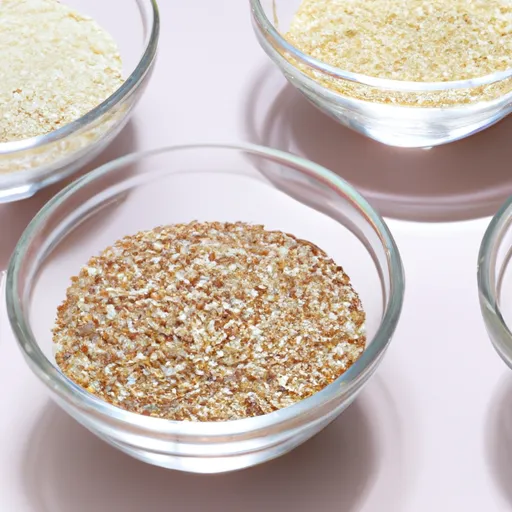How to Incorporate More Whole Grains Into Your Diet
Adding more whole grains into your diet can have numerous health benefits, including improved digestion, weight management, and lower risk of chronic diseases. Whole grains are packed with nutrients like fiber, vitamins, and minerals that are essential for overall well-being. Here are some simple tips to help you incorporate more whole grains into your daily meals.
1. Start Your Day with Whole Grain Breakfast Options
Switch up your typical breakfast routine by choosing whole grain options like oatmeal, whole grain toast, or whole grain cereal. These options are not only delicious but also provide lasting energy to kickstart your day.
2. Swap Out Refined Grains for Whole Grains
Instead of reaching for white bread, pasta, or rice, opt for whole grain alternatives like whole wheat bread, brown rice, or whole grain pasta. These swaps are an easy way to add more nutrients to your meals without sacrificing taste.
Read also: Holiday Eating Tips: Avoid Weight Gain
3. Snack on Whole Grain Options
Keep whole grain snacks on hand for when hunger strikes between meals. Popcorn, whole grain crackers, or granola bars made with whole grains are great options to keep you satisfied and energized throughout the day.
4. Experiment with Different Whole Grains
Don’t be afraid to try new whole grains like quinoa, barley, or farro in your meals. These grains offer unique flavors and textures that can add variety to your diet. Incorporate them into salads, soups, or as a side dish to your main course.
5. Read Labels and Choose Whole Grain Products
Read also: Tips for Heart Health: Aging Gracefully without Compromise
When shopping for packaged foods, make sure to read the labels and look for products that list whole grains as the first ingredient. This ensures that you are getting the most nutritional benefits from the product.
Remember, small changes can lead to big results when it comes to incorporating more whole grains into your diet. By making simple swaps and trying new recipes, you can enjoy the numerous health benefits that whole grains have to offer.
Questions and Answers
Why are whole grains important for a healthy diet?
Whole grains are important for a healthy diet because they are packed with essential nutrients such as fiber, vitamins, minerals, and antioxidants. They can help reduce the risk of heart disease, stroke, type 2 diabetes, and certain types of cancer. Whole grains also promote digestive health and can help with weight management.
What are some examples of whole grains?
Some examples of whole grains include quinoa, brown rice, oats, barley, whole wheat, bulgur, and farro. These grains can be incorporated into meals such as salads, soups, stir-fries, and casseroles to add nutrients and fiber to your diet.
How much whole grains should I incorporate into my diet?
It is recommended to make at least half of your grain intake whole grains. This means consuming about 3-5 servings of whole grains per day, depending on your caloric needs. One serving of whole grains is equivalent to one slice of whole grain bread, 1/2 cup of cooked whole grains, or 1 ounce of whole grain pasta.
Are whole grains gluten-free?
No, not all whole grains are gluten-free. Some whole grains such as wheat, barley, and rye contain gluten, which is a protein that can be harmful to individuals with celiac disease or gluten sensitivity. However, there are gluten-free whole grains such as quinoa, brown rice, oats, and millet that can be safely consumed by those following a gluten-free diet.

